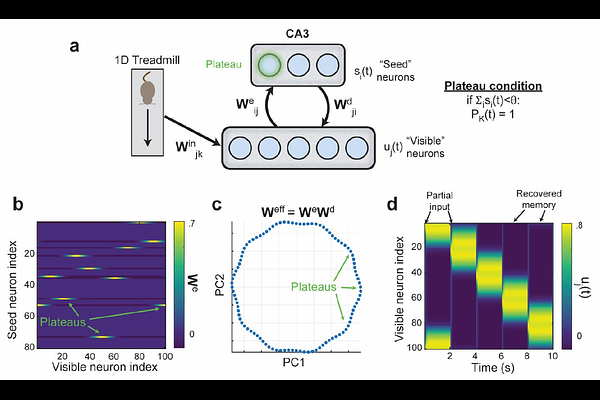Credit Assignment via Behavioral Timescale Synaptic Plasticity: Theoretical Frameworks

Credit Assignment via Behavioral Timescale Synaptic Plasticity: Theoretical Frameworks
Cone, I.; Clopath, C.; Costa, R. P.
AbstractBehavioral Timescale Synaptic Plasticity (BTSP) is a form of synaptic plasticity in which dendritic Ca2+; plateau potentials in hippocampal pyramidal neurons drive rapid place field formation. Unlike traditional learning rules, BTSP learns correlations on the timescales of seconds and rapidly changes single-unit activity in only a few trials. To explore how BTSP-like learning can be integrated into network models, we propose a generalized BTSP rule (gBTSP), which we apply to unsupervised and supervised learning tasks, in both feedforward and recurrent networks. Unsupervised gBTSP mirrors classical frameworks of competitive learning, learning place field maps (in the feed-forward case), and attractive memory networks (in the recurrent case). For supervised learning, we show that plateau events can reduce task error, enabling gBTSP to solve tasks such as trajectory matching and delayed non-match-to-sample. However, we find that credit assignment via gBTSP becomes harder to achieve with increased network depth or CA3-like recurrence. This suggests that additional features may be needed to support BTSP-mediated few-shot learning of complex tasks in the hippocampus.